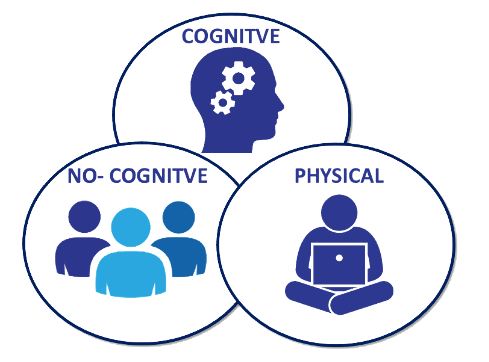
In the last decade, the world has been witnessing the fourth industrial revolution, and the digital transformation represents one essential requirement to facilitate the implementation and integration of new technologies. Most manufacturing industries are rethinking the conventional business models and organizational structures to profoundly change the traditional processes towards a new digital approach. Digitalization cannot be considered as a “one-time” process; on the contrary, it is needed an ongoing strategy aimed to analyze and transform the industrial processes from multiple perspectives. This transformation, involving assets and workers, requires time and resources. According to Issa et al., 84% of digital transformation fail or achieve targets below expectations [1]. The Digital Economy and Society Index 2021 highlighted that more than 40% of European workers still lack “basic digital” skills. At the individual level, digital skills
gaps act as a barrier to the digitalization process and employment growth [2]. Therefore, the question is, “Which skills are required to promote the digital transition”?
It is possible to summarise the skill required in three main categories: cognitive, no cognitive, and physical skills. The ‘cognitive’ skills include ICT and Science, technology, engineering, and mathematics (STEM) skills, considered essential to driving innovation and productivity gains. The ‘no cognitive’ skills include people management, coordinating, collaborating, and communicating with others. Given the fast changes in job content, the digital transition requires workers ready to learn and work together. If, on the one hand, the demand for cognitive and non-cognitive skills is growing. On the other hand, the ‘physical’ skills will open new opportunities to integrate women and older workers, which are often considered less adapt to muscular works such as transport, loads handling, machining processes, etc.

Digital transformation is an opportunity for companies and workers. There are still big steps to be faced in terms of technology and mindset. The Digital transition will probably never be fully completed, and new things to learn and adapt to will always appear [3].
- Issa A., Hatiboglu B., Bildstein A., Bauernhansl T., Industrie 4.0 roadmap: Framework for digital transformation based on the concepts of capability maturity and alignment, in Procedia CIRP, 2018.
- Morandini MC, Thum-Thysen A., Vandeplas A., Facing the Digital Transformation: are Digital Skills Enough?, in EU Economic Brief, 054, 2020
- Little AD, Digital transformation of the work, Telecommunications, Information technology, Media&Eletroncis (TIME), 2021

